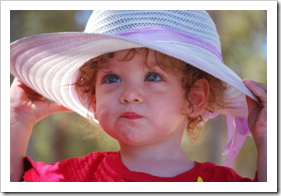
It is a fact that we cannot see ourselves the same way others can see us. Firstly because we usually see ourselves in the mirror which is not the same position others see us in. Secondly, because we see ourselves from the inside and the inside is cluttered by thoughts and feelings we have towards ourselves.
The beauty inside is developed by what others, who are very close or important to us, say about us. I have met many grownups who carry negative beliefs from childhood. For example, people who are critical of a facial feature like a long nose or big eyes that mom or dad mocked at the age of 6. They simply cannot shake this feeling in adulthood.
I myself grew up in a culture that thought straight hair was an advantage and curly hair was not. As kids, we spent year looking for ways to straighten our hair. It was only when I grew up and met others who spent a fortune on curling their hair that I learned to appreciate what I have. This is a natural process.
Read The Beauty Inside »















